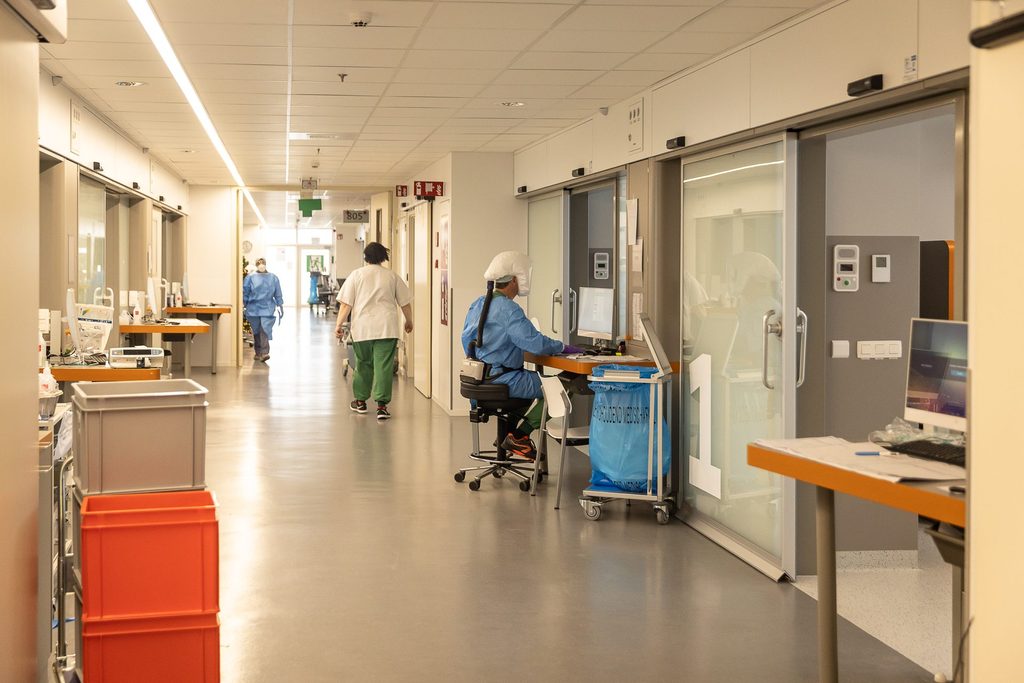Hospitals in Belgium are under increasing strain as staff shortages, burnout, and the residual effects of the Covid-19 pandemic have pushed Belgium's medical sector close to breaking point.
According to experts interviewed by La Dernière Heure (DH), health provision is likely to get considerably worse in the coming weeks as vacationing staff are replaced by undertrained medical students.
"The hardest part of Covid is behind us but today we can feel the impact of all this workload on the staff," said Marcel Van der auwera, Head of Medical Emergencies at Federal Public Service (FPS) Public Health. "Many have decided to leave, others are on long-term sick leave and caregivers also have to take a break and go on vacation. This gives rise to a tense situation on the ground and we fear that this summer there will be even more closed beds and units will be shut down."
Van der auwera's comments were echoed by Laurence Hody, the Chief Nurse in Cardiovascular Surgery at Saint Luc University Hospital, who explained that medical students' poor training is itself partly a consequence of prior staff shortages.
"For 10 years, the situation has deteriorated and we don't see many students applying and arriving in schools," Hody explained. "On the ground, colleagues are suffering and we are no longer able to teach the job properly to students on an internship... We are dying in silence. Everyone was talking about us during Covid but it's as if there's no consideration for us anymore."
'A vicious circle'
Staff shortages have become increasingly severe in Belgium's medical sector. According to the Federal Centre for Health Care Expertise (KCE), the current ratio of nurses to patients is half the officially recommended amount (1:10 rather than 1:5). Inadequate staff numbers also recently caused Belgium's Health Ministry to remove 5% of available hospital beds across the country.
One expert told DH that if overworked staff are unable to unwind and relax over the summer, many doctors and nurses could be tempted to look for jobs in other professions – an alarming prospect in a sector where approximately 80% of employees are already reportedly looking to leave.
Related News
- Brussels hospitals can no longer refuse requests for abortions
- 'Break the vicious cycle': Public sector to protest on streets of Brussels again on Tuesday
"Caregivers must be able to breathe and detach themselves from the professional sphere, it is even essential," emphasised Evelyne Magerat, a former nurse and current representative of the Confederation of Christian Trade Unions of Belgium (ACV/CSC). "If they do not recover today, there is a risk of illness and burnout."
Magerat also predicted that the most likely outcome this summer is that medical staff will continue to work until the end of the holiday period – at which point there will be an especially severe labour crunch.
"In the end, we're just going to postpone the problem and end up with a plethora of holidays to manage at the end of the year. A lot of people have resigned, which has increased the workload and besides that, there are not enough students coming out of school to fill the gap. It is a vicious circle that aggravates the situation in the hospital."

